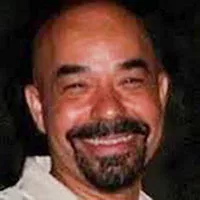Before long, however, Rodriguez returned to Wisconsin. According to Stevens’ letter to classmates in fall 2017, “Dr. Rodriguez practiced emergency medicine for more than 30 years in Milwaukee, became a loving husband to his wife, Patti Hautala, and a well-loved colleague by his co-workers at Aurora West Allis Memorial Hospital and Aurora St. Luke’s Medical Center.”
Meanwhile, after four years at Bethesda, Stevens left active duty and joined the Navy Reserve. The standard reserve commitment of one weekend per month and two weeks a year changed dramatically after 9/11. His anesthesiology practice was interrupted frequently for military service. The Marine Corps relies on the Navy for its medical and religious personnel, and so between 2003 and 2008, Stevens deployed twice to Iraq in support of Operation Iraqi Freedom. Between combat tours, he commanded the Marine Corps Reserve’s 4th Medical Battalion.
In 2005, he served as the Marine Forces Katrina Surgeon in New Orleans, assisting with recovery operations following Hurricane Katrina. Afterward, he stayed in New Orleans and served as the 4th Marine Division Surgeon, helping prepare Marines and Sailors preparing to deploy to the Middle East, and organizing their medical and dental care after their return home. In 2008, Stevens again deployed to Iraq, this time to Al Anbar Province with the I Marine Expeditionary Force (Forward), under the command of then-Major General John F. Kelly.
Between 2010 and his 2014 retirement from the military, Stevens deployed to Afghanistan during the surge ordered by President Obama, and later to East Africa as the senior U.S. medical officer, based in Djibouti, assigned to the Combined Joint Task Force–Horn of Africa. Between deployments, he spent five years as an anesthesiologist and administrator at the Captain James A. Lovell Federal Health Care Center in Chicago.
As he recounted in his letter to classmates, “Because of my several deployments, I lost track of Humberto, and I did not find out that he had become ill and passed away until after I returned home from Africa in 2014.”
Stevens learned of Rodriguez’s death because he sent a Christmas card to him and his family, after which Patti Hautala called with news of her husband’s death the previous year from pancreatic cancer.
“I didn’t know what to say,” says Stevens.
Giving Back, Paying Forward
Settling into full-time civilian life in Chicago, Stevens accepted a position as an anesthesiologist at Advocate Illinois Masonic Medical Center and professor of anesthesiology and medicine at the Chicago Medical School of Rosalind Franklin University of Medicine and Science. And he kept thinking about Rodriguez.
“Humberto was a good soul, a special person. Although he never seemed to have any money, he always was willing to help another student in need,” he recalls. “When we were in medical school, tuition was about $4,600 per annum. Now it’s close to $30,000. We don’t know who the next Humberto Rodriguez will be, but we can be certain there will be other deserving Spanish-speaking students who can’t pursue their medical education without help.”
Stevens continues, “We both benefited from financial support, and the more I thought about it, the more it seemed that a scholarship in his name would be a fitting tribute to him, as well as a way to give back to the school that launched our careers.”
The scholarship will be awarded to Spanish-speaking students to help increase diversity at the School of Medicine and Public Health and support the school’s goal to improve health equity.
“This fund aligns perfectly with our commitments to expand the diversity of our student body and prepare the next generation of physicians to serve an increasingly diverse population,” notes School of Medicine and Public Health Dean Robert Golden, MD.
Stevens credits the UW Foundation for its work setting up the fund.
“Jessica Gracon from the UW Foundation visited me in July 2017. We developed the idea of getting the fund set up in time for our 35th class reunion in October. That meant getting the first appeal letter out in August. We had to move quickly, and foundation staff, especially Maureen Brady, made it happen,” he says. “Our class representative, Prof. Bob Lebel, also was very helpful, as he had previous experience setting up a memorial scholarship.”
Stevens seeded the fund with an offer to match contributions made in 2017, up to $25,000. In his August letter to classmates, he set a goal to raise $50,000 by the reunion. By October, the total had reached $103,000, and 14 members of the class had contributed.
To date, 20 classmates have contributed to the fund, and Stevens is delighted with the response. He also has a long-term vision for the scholarship program.
“My goal is an endowment of $1 million within the next 10 years,” he describes. “At that level, the scholarship could provide close to full funding for deserving students.”
He continues, “Members of the Class of 1982 are reaching the stage in our lives when we’re starting to think about our legacy. I’m hoping others who knew Humberto or simply want to be part of expanding diversity and opportunities in medicine will see this as a meaningful way to give back.”
For more information about donating to the SMPH Class of 1982 Humberto A. Rodriguez, MD, Memorial Scholarship, please contact Jill Watson, the SMPH’s philanthropic partner at the UW Foundation, at 608-262-4632 or jill.watson@supportuw.org.



